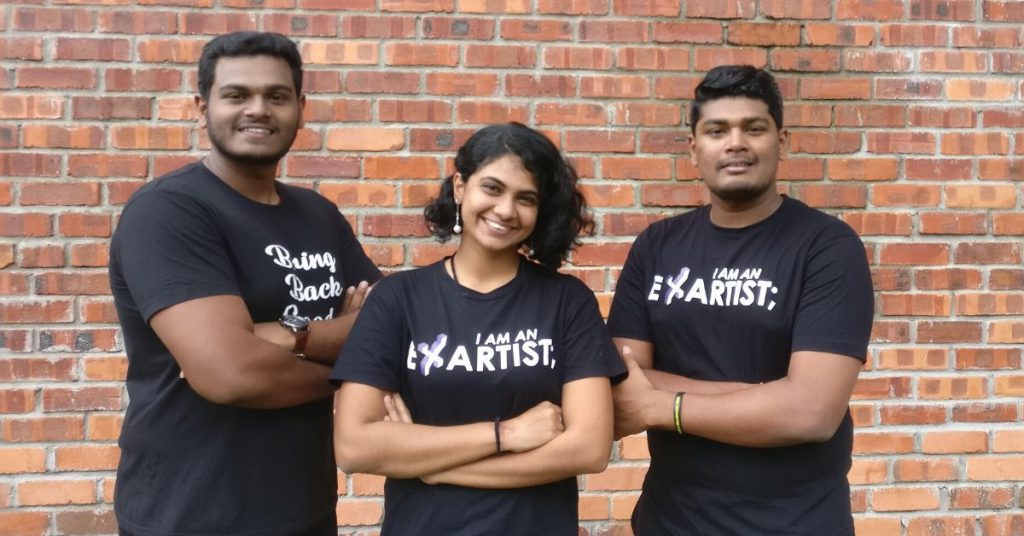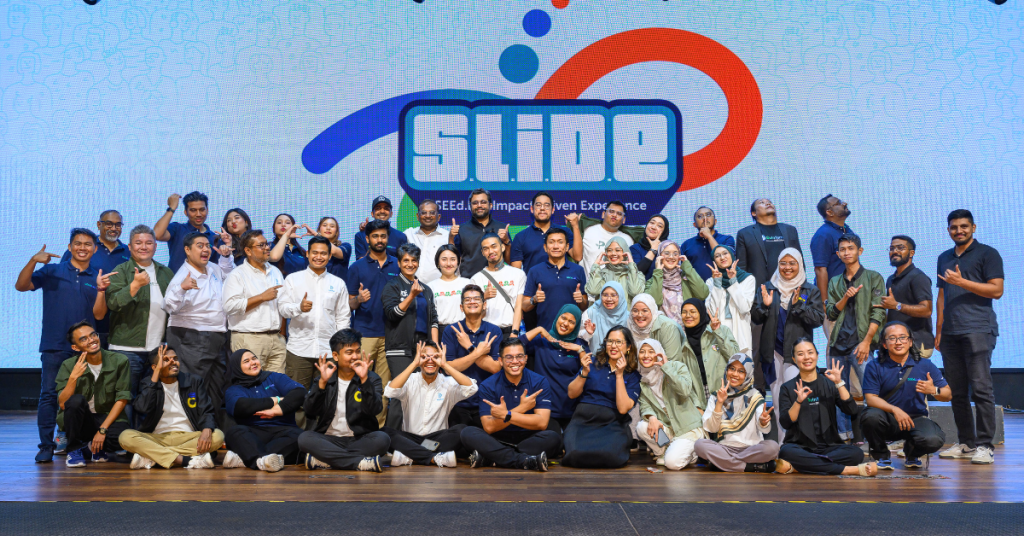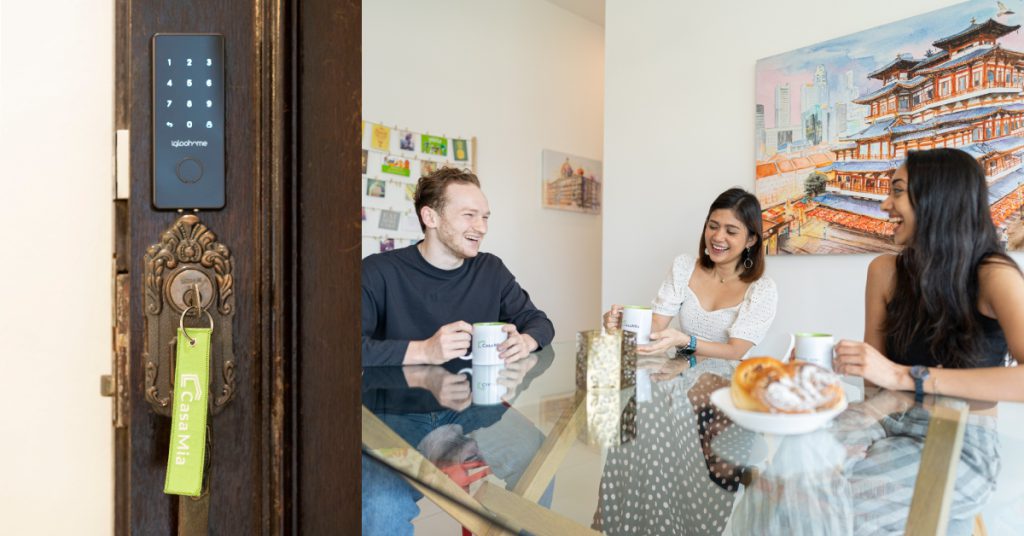Chances are if you’ve been a user of Instagram and Snapchat for a while now, you’re bound to be quite familiar with what we call ‘filters’ or lenses.
These lenses use augmented reality (AR) to beautify you, turn you into a monster, or just distort your overall appearance in so many different ways.
People love using them, and with the high volume of social media users nowadays, three young Malaysians saw the opportunity of turning lenses into a marketing strategy.
This is how ExAR came to be.
Getting The Right Team
At the end of 2017, Eswaran (Eswar) joined an AR competition with a group of friends and created a virtual fitting app that allowed people to try on clothing before purchasing them.
However, despite winning second place, his team members weren’t interested in pursuing the project further.
Later, over dinner with his best friend Renuga, she came up with the idea of doing virtual jewellery fitting with AR, and Eswar began doing some research, which led him to Lens Studio by Snapchat.
They then started exploring the software by taking necklace pictures from Google and ‘wearing’ them.
Besides their friends, they also showed this to several jewellery sellers to gauge their interest in using the technology for their business.

Unfortunately, they were declined, but Eswar and Renuga held onto the belief that lenses would soon be a valuable marketing tool for brands to enhance their campaign reach.
A few months later, the duo applied to become Official Lens Creators for Snapchat, went through an interview, and got chosen.
In 2018, their final year of university, Eswar and Renuga founded ExAR, but it was only fully realised when Arun (Eswar’s younger brother who’s still in university) joined the team with his animation and 3D modelling skills.
People Love Looking At Themselves
What ExAR does is engage social AR for marketing. This means that the AR technology is specifically made for social media, and a user doesn’t have to download a separate AR app.
“Usually, companies would advertise contents through ads and it would be a one-way interaction as consumers would just consume these ads. Through lenses, we would have a two-way interaction that would create an organic viral effect,” Renuga told Vulcan Post.
Getting people to share posters and videos might be a little hard, especially when it doesn’t connect with the audience, but sharing filters or lenses that connect to them and has their own face in the picture is something easier especially in this era.
Renuga, ExAR
ExAR started out on Snapchat, but with Facebook’s Spark AR, they’ve gone into Instagram and Facebook too.
These platforms don’t charge ExAR anything either since they want to encourage creators to create filters and lenses.
“However, if it involves ads, then yes, we would have to pay to run ads. Think of it like a video that you create for brands. It’s a similar structure but different format,” Renuga said.
Monitoring Metrics
ExAR’s main source of monetisation comes from the Certification Programme endorsed by Snap as well as through creating lenses for brands.

“We look at lenses as a content format that has high organic reach among youngsters. However, lenses themselves aren’t enough and that’s why we work with some influencer marketing agencies to push these lenses out to the audience,” Renuga told us.
Their project rate starts from RM1,000 per lens, but the price of running a campaign will differ due to marketing costs.
At the moment, clients and collaborators use ExAR to increase their visibility.
“In Malaysia, there aren’t many brands aware of such a content format. But once it reaches a maturity level, we will start seeing lenses being created for customer acquisition,” Renuga said.
One of the lenses they did in conjunction with The Nun got them 1.4 million views in one week, but views are simply vanity metrics.
Behind the lenses, ExAR also monitors 2 types of metrics for clients.
The first one is marketing metrics such as impressions, click-through rate, and shares, which are self-explanatory to most marketers and clients.
For the second type, it is focused on the lenses themselves such as views, shares, and plays.
“But the most unique part about lenses is that there is another vital metric that stands out and perhaps shows real value to people,” Renuga added.
Much like YouTube, watch time can be measured to gauge engagement, and ExAR uses this measurement to help them make better content and marketing plans with their clients.
Starting From Scratch
One of the biggest challenges they faced when starting up was the lack of references on how to make their business work.

“When we first started to create, we were one of the first 30 people in the world who were creating lenses and filters on social media,” Renuga said.
This meant there weren’t any tutorials, articles, or success stories for them to refer to.
They also worked with the wrong people, which wasted a lot of their time and caused self-doubts to set in.
But what they learned from it all was that, in order to make something work, they needed feedback from the right audience.
Instead of only asking family and friends, they would ask random people to try their lenses and sometimes talk to prospects on this, which let them know that there was a lot more work to do.
“Feedback is perhaps one of the most underrated processes in running a startup, but luckily we realised it earlier,” Renuga stated. Armed with the necessary feedback and insights, the team is now confident in their approach.
Make Something That People Want
Currently, their core focus is to build awareness amongst creators and activate AR communities in Malaysia, though they’re not limiting themselves only to Malaysia.

Organisations from Jakarta and India have also expressed interest in what ExAR has to offer, and the team has already conducted workshops for educational institutions in both India and Malaysia.
As for the future, ExAR plans to position itself as a media company for social AR rather than an agency.
After having worked on different business models for the past 1 year, Renuga shared:
The best way to be sustainable for a long run is to create what our audience really want and having a value proposition that satisfies their needs instead of having a product and then chasing for people to use.
Renuga, ExAR
- You can read more about other Malaysian startup’s we’ve written on here.
Featured Image Credit: ExAR














